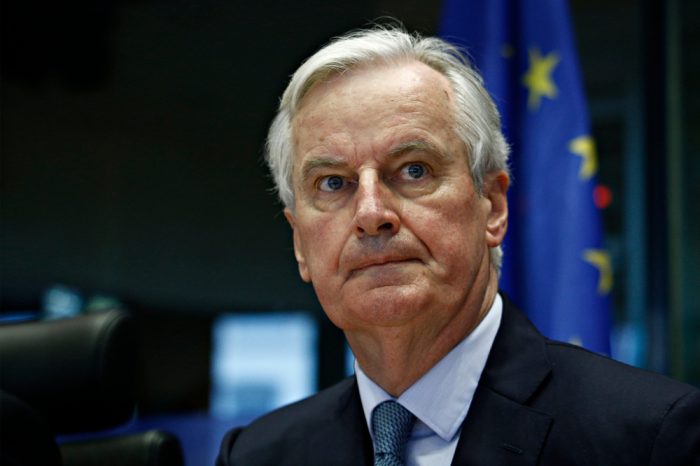A year to go and we’re nowhere near a satisfactory Brexit
A significant milestone which most people would otherwise probably have failed to have noticed has been widely reported in the media today.
The picture above depicts how I had been imagining the mood will be in exactly a year’s time – on March 29th 2019 when the two-year Article 50 period expires and we finally leave the EU. As things stand, however, it will be Brexit in name only, so most certainly not be a cause for celebration. Ahead lies a minimum of 21 months as a vassal state, where we will continue to suffer all the frustrations of being in the EU without any representation in the EU institutions.
Looking back to that incredible morning of 24th June 2016 when the referendum result was announced, not even the worst pessimist could have predicted the complete shambles which the Government has made of the Brexit negotiations. Without any clear idea of what sort of final deal they sought and outsmarted at every turn by Michel Barnier and his team, Theresa May and David Davis have made concession after concession to the EU and have come up with the idea of a transitional deal as a means of buying time after realising that so many areas of detail cannot be sorted out in time for a long-term deal giving us full independence to be signed off in time to be implemented a year from today.
So we are facing a situation where our bright future has been postponed. No restrictions on immigration, no freedom from the European Court of Justice, no cut in our contribution to the EU’s coffers and the decimation of our fishing industry. This was not what we voted for in June 2016.
The big question is why so many Tory MPs, even staunch supporters of independence, are being so quiescent in the face of what is likely to be a disaster, not just for the fishing industry, but for the country as a whole – and thus, for their party electorally. Are they, as one report suggests, mere “paper tigers” who “may huff and may puff, but they won’t blow the Prime Minister’s house down – however far any heads of agreement deal may be from perfection”?
Thankfully, all is not lost – yet. The divorce document has to be signed off not only by the EU but by our Parliament too and the combination of a vote forced through (ironically) by remainers giving MPs the chance to reject the final deal and Mrs May’s wafer-thin majority may save the day. For one thing, the Irish border issue, in spite of reports to the contrary, is unlikely to be solved quickly in a way that will satisfy the Democratic Unionist Party, upon whose support Mrs May depends.
Secondly, the cave-in on fishing has provoked immense anger – on a scale that appears to have taken the government aback. Michael Gove was clearly uncomfortable when he faced some awkward questions in the House of Commons and given the fishing industry’s long history of campaigning, we can be sure that we have not heard the last of this issue yet.
Furthermore, it is not too late to try a different approach. The EEA/EFTA route has its friends and also its critics among Brexit supporters. Everyone, however, must agree on two points. Firstly, that it is not the ideal long-term relationship for an independent UK to have with the EU, but secondly (and in the immediate context, far more importantly), it is better as an interim arrangement in every way than the transitional terms which the EU is offering us – and is still a viable option which could be implemented with in a year. The EEA/EFTA countries are not part of the political structure of the EU, subject only to the 25per cent or so of laws relating to the internal market, not directly subject to the ECJ but to the EFTA court which can only rule on EEA-relevant matters and does not have any formal powers of enforcement. IF we took this option, we would be outside the Common Security and Defence Policy, the so-called “Common Area of Freedom and Justice” – especially the EAW, Europol and the Eurogendarmerie. We would also be outside the Common Agricultural Policy and critically, our fishing industry can return to domestic control. We could also restrict immigration as Liechtenstein has done.
We believe that all is not yet lost, but the lunacy of Mrs May and Mr Davis in pursuing this terrible transitional arrangement is totally baffling given something better is on offer. The electoral consequences for the Conservatives will be enormous. The sooner and more often they hear “1846” whispered in their ears* the more likely we are to see a desperately-needed change of tack.
-
In 1846, a crisis over the Repeal of the Corn Laws precipitated a crisis for Robert Peel and the Tory party. The damaging split which ensued kept the Conservatives effectively out of office for 28 years. Your author is firmly convinced that the party will face a catastrophe of equal magnitude if Brexit is botched.







